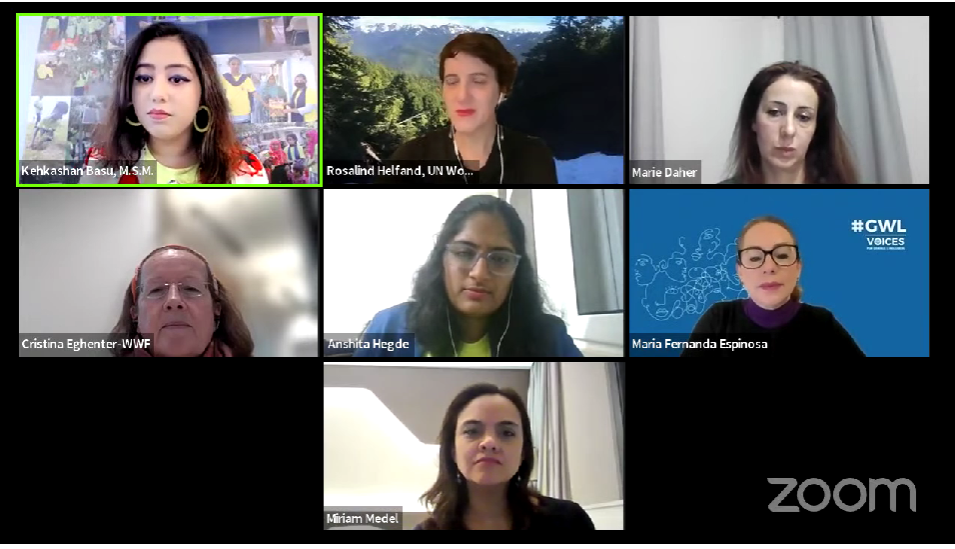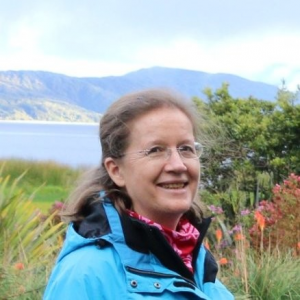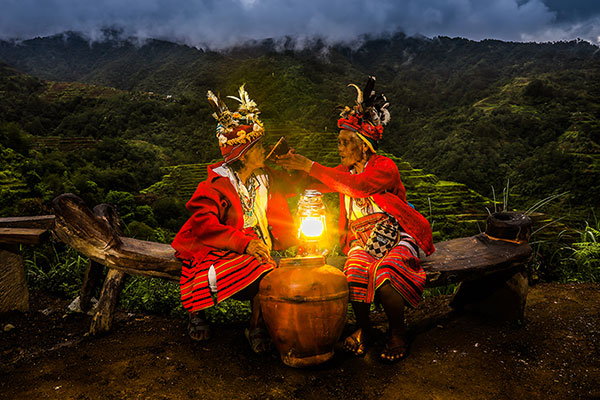Text by Cristina Eghenter
The parallel event, Driving Land Restoration in Rural Communities through Feminist Climate Justice, organized and moderated by the Green Hope Foundation last 14 March at the recent Sixty-Seventh Meeting of the Commission on the Status of Women (CSW 67), enabled a very important discussion and exchange on gender and climate justice, and land restoration in rural communities.
The speakers voiced a common call for women’s rights to land and resources being pivotal to driving successful restoration and other effective solutions to climate change.

As part of the panel, I talked about how tenure security needs to be at the center of this agenda nurtured by the strong bonding of rural and Indigenous women with the land. The recognition of rights will lead to security only through gender-transformative policies and leadership of women and men, the recognition of the governance of the commons in rural and indigenous areas, and access to education, finances, and technologies for women. Injustice can be in formal and customary laws, but injustices and violence can also be in the practice of the law.
Women in rural and indigenous communities still face the challenge of “invisibility.” Structural and cultural invisibility neglect women’s roles and their presence in certain social and natural spaces, weaken their rights and claims, and misrepresent women’s contributions and solutions to climate adaptation and land degradation.
To counter this, there is a need to continue to support self-documentation, “authentic” research, better gendered statistics, hold consultations and meaningful dialogues with women.
Women can then count on the fact that they can effectively mobilize networks and coalitions, enable collaboration and intergenerational action, and all of these can help transform power structures, and bring women to policy- and decision-making spaces.
Watch the recording of the CSW67 parallel event “Driving Land Restoration in Rural Communities through Feminist Climate Justice” here.

Cristina Eghenter is the current Global Governance Policy Coordinator at WWF International, with focus on human rights-based approach advocacy at the Convention on Biological Diversity (CBD) and other global fora where WWF engages. Her experience builds on over 20 years of work in Indonesia to support Indigenous Peoples’ networks and communities and women’ s associations, in their efforts to secure rights over their lands and resources and strengthen their governance institutions.


